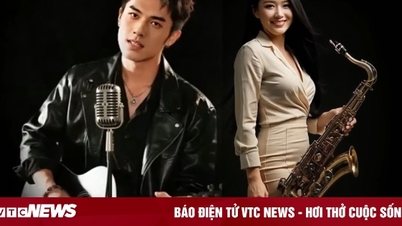The lawsuit related to the copyright dispute of the MV Baby Shark started in 2019. The plaintiff was American musician Jonathan Wright (stage name Johnny Only). In March 2019, Jonathan Wright filed a lawsuit with the Seoul court (South Korea).
Jonathan Wright said he composed this song in 2011 based on a folk melody and Pinkfong Entertainment Company - the MV's publisher - copied this work without permission.
In response to the allegations, Pinkfong Entertainment asserted that Baby Shark was an independent derivative of a folk tune. The legal battle was protracted.

The "Baby Shark" copyright dispute has ended after 6 years (Screenshot).
At the first instance in 2021 and the appeal in 2023, the court ruled in favor of Pinkfong, stating that there was insufficient evidence to show that Jonathan Wright’s work was protected. The appeals court emphasized that both works were derivative works of the same folk song.
Jonathan Wright continues to appeal to the Supreme Court. According to The Straits Times, on August 14, the Supreme Court of South Korea issued a statement to end the legal battle that lasted more than 6 years over the song Baby Shark.
The ruling found that Baby Shark did not show signs of plagiarism and dismissed Jonathan Wright's copyright claim.
The court explained that a derivative work is only protected by copyright if it contains enough new creative elements to be considered original. In this case, Jonathan Wright's changes, such as adding an electric guitar, were considered minimal and could not be considered to create a new work.
Before the final verdict, Pinkfong Company asserted that they brought a new breath to the song by adding an upbeat, catchy beat and turning it into the pop culture icon it is today.
According to MBW, the song Baby Shark has a long history, appearing at least since the 1970s at summer camps in the US. This is a folk song, often used as a warm-up song with hand movements simulating the size of a shark's mouth.
Over the generations, this melody has been varied, passed down orally and is not under exclusive ownership.
The Baby Shark music video was released in 2015 and became the most viewed video on YouTube, with over 16 billion views to date. The Baby Shark music video is also recognized as a global phenomenon with great appeal to children in 200 countries.
The appeal of animated videos is the catchy tunes, simple hand gestures and repetitive lyrics. The hook dance moves to the tune of “doo doo doo doo doo” also became a global craze.
Riding on the success of the music video on YouTube, the Baby Shark brand has expanded into animated films, TV shows, toys, books, clothing and other franchised products.
With the latest ruling, Pinkfong Company has protected its billion-dollar brand and continues to exploit the "gold mine" from the most successful children's music phenomenon of all time.
Source: https://dantri.com.vn/giai-tri/mv-gay-sot-toan-cau-va-dat-16-ty-luot-xem-tren-youtube-thoat-an-dao-nhac-20250815082246025.htm





![[Photo] Binh Trieu 1 Bridge has been completed, raised by 1.1m, and will open to traffic at the end of November.](https://vphoto.vietnam.vn/thumb/1200x675/vietnam/resource/IMAGE/2025/10/2/a6549e2a3b5848a1ba76a1ded6141fae)























































































Comment (0)